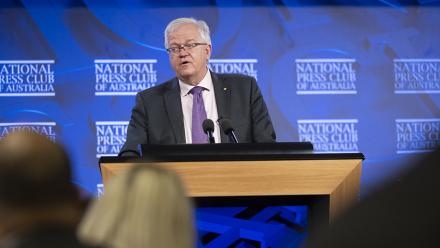Experts call for global plan to understand bushfire impact
As climate change-driven extreme weather events such as bushfires become more frequent and intense, a team of experts led by researchers at The Australian National University (ANU) are calling for a global research plan to better understand the short- and long-term impacts on maternal-child health.
The research team is studying the health impacts of the 2019-2020 Black Summer bushfires on mothers and their babies.
"Sadly, we're going to be facing more and more of these events," Professor Christopher Nolan said.
"We've recently seen New York covered in smoke due to the Canadian wildfires - an all too familiar sight for many Australians."
"Women interviewed as part of our study into the 2019-2020 bushfires were desperate for information about the potential impact of the fires and smoke on their pregnancy, but there was very little available," Professor Deborah Davis said.
According to the authors, getting clear evidence about the short- and long-term health impacts is difficult.
"You need to have an approach in place so you're ready to go from day one in order to get a high-quality study and get the answers. This means having a research plan, ethics approvals and funding in place before bushfire crisis events occur," Professor Nolan said.
The researchers say that having an internationally accepted research protocol would be a huge step forward.
"If everyone is doing research sampling at the same time, for example, or using the same surveys of psychological health, it gives you much greater statistical power," Professor Nolan said.
"It would allow us to much more clearly answer questions like whether babies and infants exposed to bushfire smoke have a higher risk of respiratory diseases such as asthma."
The study's authors believe there needs to be a particular focus on less well-resourced regions of the world in which women and children are at greatest risk.
"We know women with pre-existing medical conditions such as gestational diabetes or hypertension, or mental health conditions, are more likely to be adversely affected, so they should be a priority going forward," Dr Amita Bansal said.
"Those from Indigenous communities or people who are at greater risk of marginalisation, such as refugee women or those from sexually and gender diverse groups, should also be a focus.
"It is also crucial to explore how these events impact our youngest generation in life, so that timely action can be taken to prevent any long-term effects on health.
"Prevention and recovery response strategies need to be developed with gender-equitable policies in mind that empower women."
The research team includes experts from ANU, the University of Canberra and Canberra Hospital.
The study has been published inThe Lancet Planetary Health.


